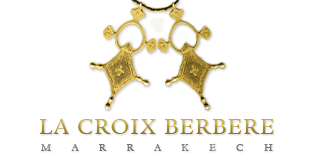Staying in Marrakech is the starting point to the Bereber discovery.
The Greek word for Bereber is “barbaroi”, which means a stranger whose language cannot be understood. As for Berbers, they refer to themselves as Amazighs. The word “Amazigh” means noble and free man. It should be said that Berbers have been known since the times of the Pharaohs, when they occupied a large territory to west of Egypt.
Nowadays, Berbers occupy several African countries on a surface of more than 3 million square miles. The large majority of this population is concentrated in the Maghreb. Certainly, the majority of the Maghrebi population is Arabic-speaking, but the Berber language, or at least the dialects derived from it, is present among the Chleuh people in Morocco and the Kabyls in Algeria. It turns out that the Berber language and the Greek language have a same origin, since both of them are the only ones having similar articles.
everal examples show us quite clearly this similarity: such is the case of “thalasso”, which means “ocean” in Greek, and “tala”, meaning “water source” in Berber; or “Phaus” in Greek and “phate” in Berber meaning “light”, etc. Several other examples could be cited to prove that closeness between the Greek and the Berber languages. The Berber alphabet is called “tifinargh” and its origin goes back to the 6th century BC. This alphabet was reconstituted by M. Khélifani and readapted to suit present demands.
If you have decided to spend your holidays in Morocco and to stay in Marrakech by choosing your accommodation in a riad in Marrakech, for instance, don’t forget to visit all these little Berber villages around the city to discover a whole tradition. In the Berber calendar there are two main appointments in the Berber tradition: the New Year and the Achoura. For the New Year’s main dish is the famous cuscus with seven vegetables. A date’s stone is hidden at the bottom of the dish and the person who finds it will have the baraka (luck) all year!
The Achoura is celebrated by all Muslims and interpreted by Sunni Muslims as a celebration for children: toys and presents, etc. In the Berber regions, it is a true carnival during which men dressed with animal skins go around the village singing and asking the villagers for food and presents. Berber tradition marks and regulates Berber everyday life. In the nomad tradition, hospitality is very important. Tea is offered and it is a duty to accept it.
If you make a reservation in a riad in Morocco, you will have a chance to discover Moroccan hospitality and all the pleasure that go with it.
Singing is very much present at work, especially during harvest: ahwach, ahidous, etc. Marriages are actually most often celebrated after the harvest. The most important moussems or regional celebrations are those of Erfoud (moussem of the dates), Imilchil (moussem of engagement) and Kelaa Mougna (moussem of roses).
Traditional Berber medicine, made of plants, is the most popular in all regions, especially in the most isolated areas. Through the weaving of rugs made by the Berber young girls we can rediscover the whole history of a people with all the hatreds, the alliances, and the friendships between tribes, as well as ties mostly concerning the distribution of water and pastures, which are rare in those regions.
